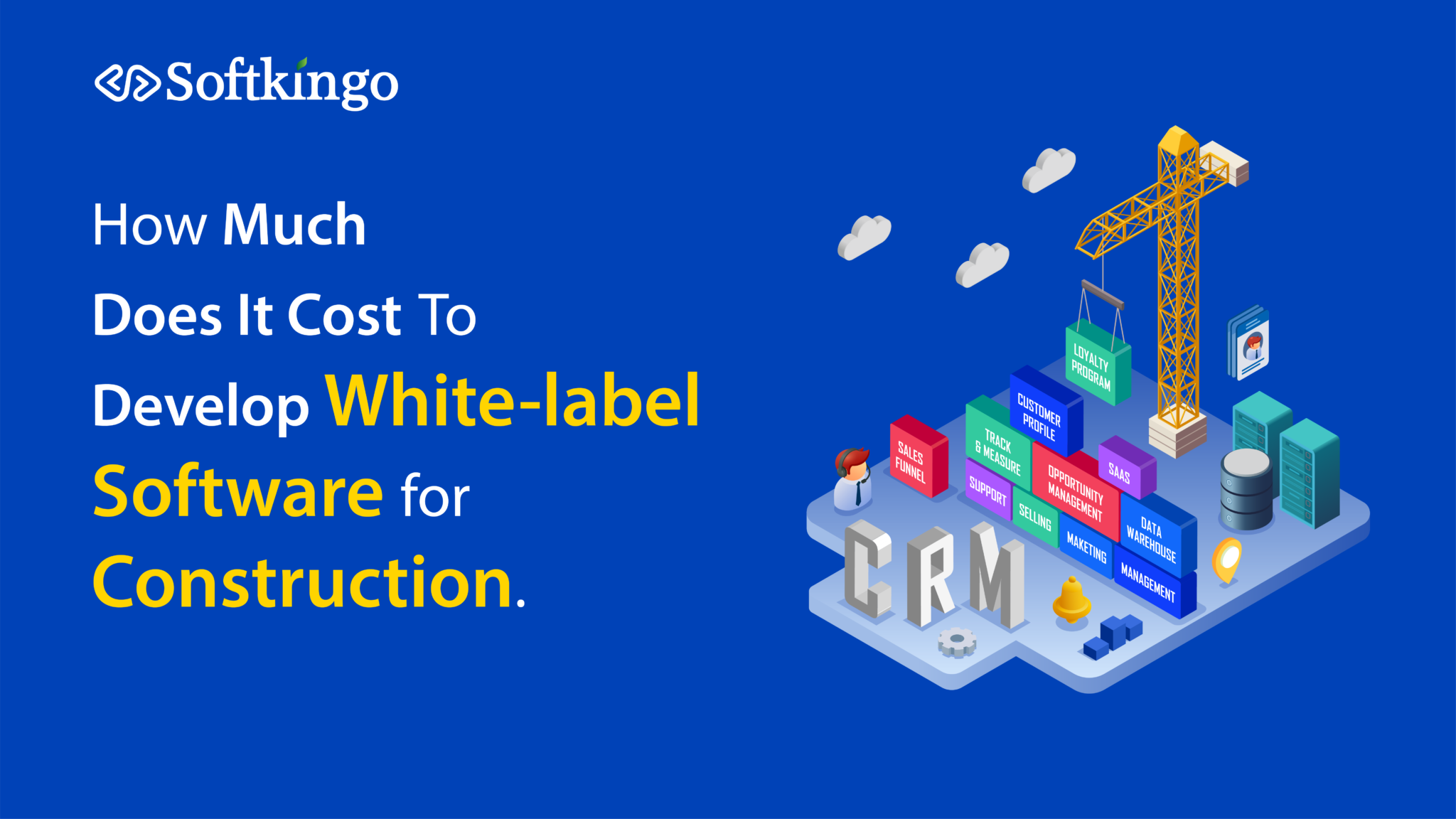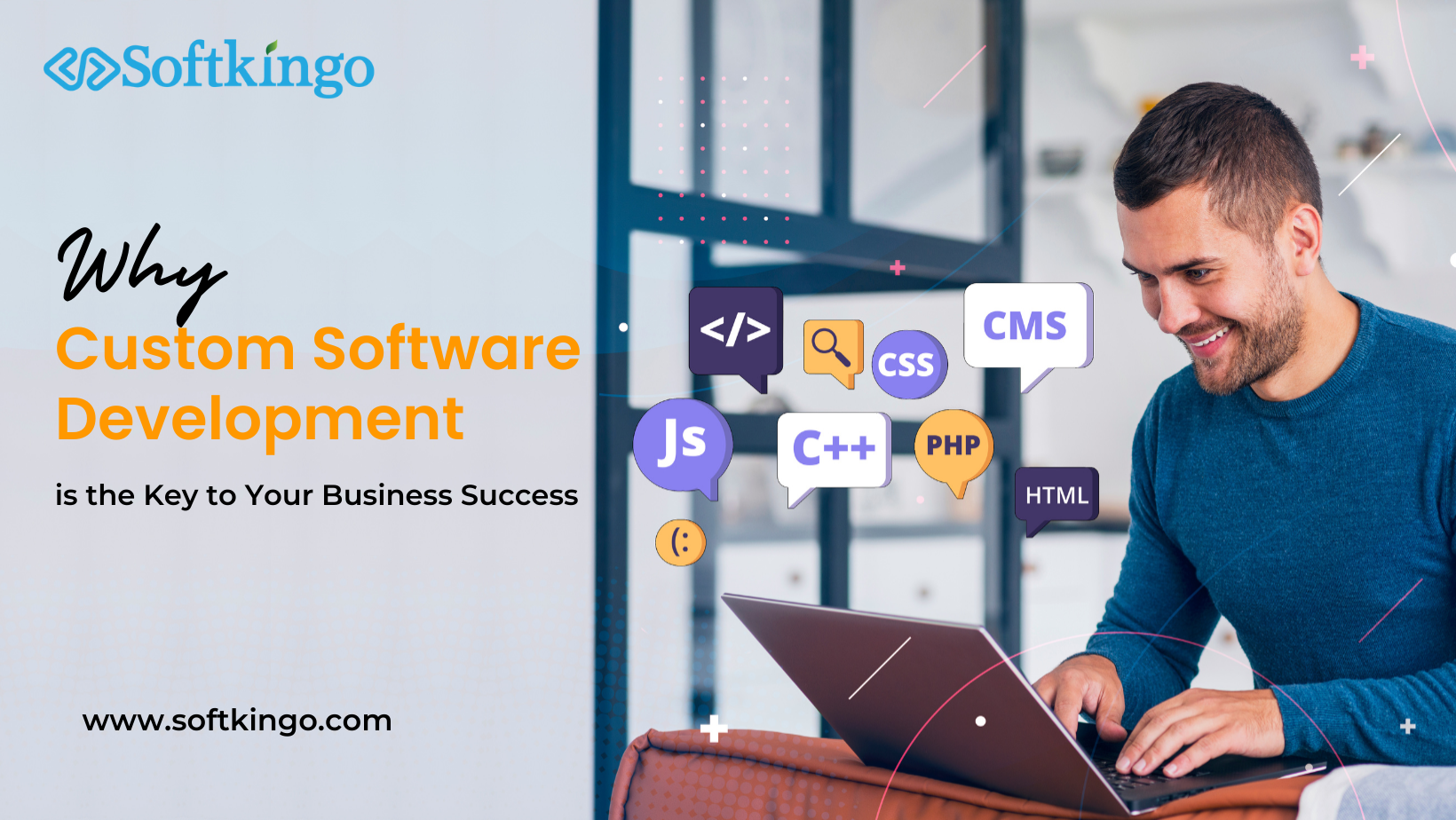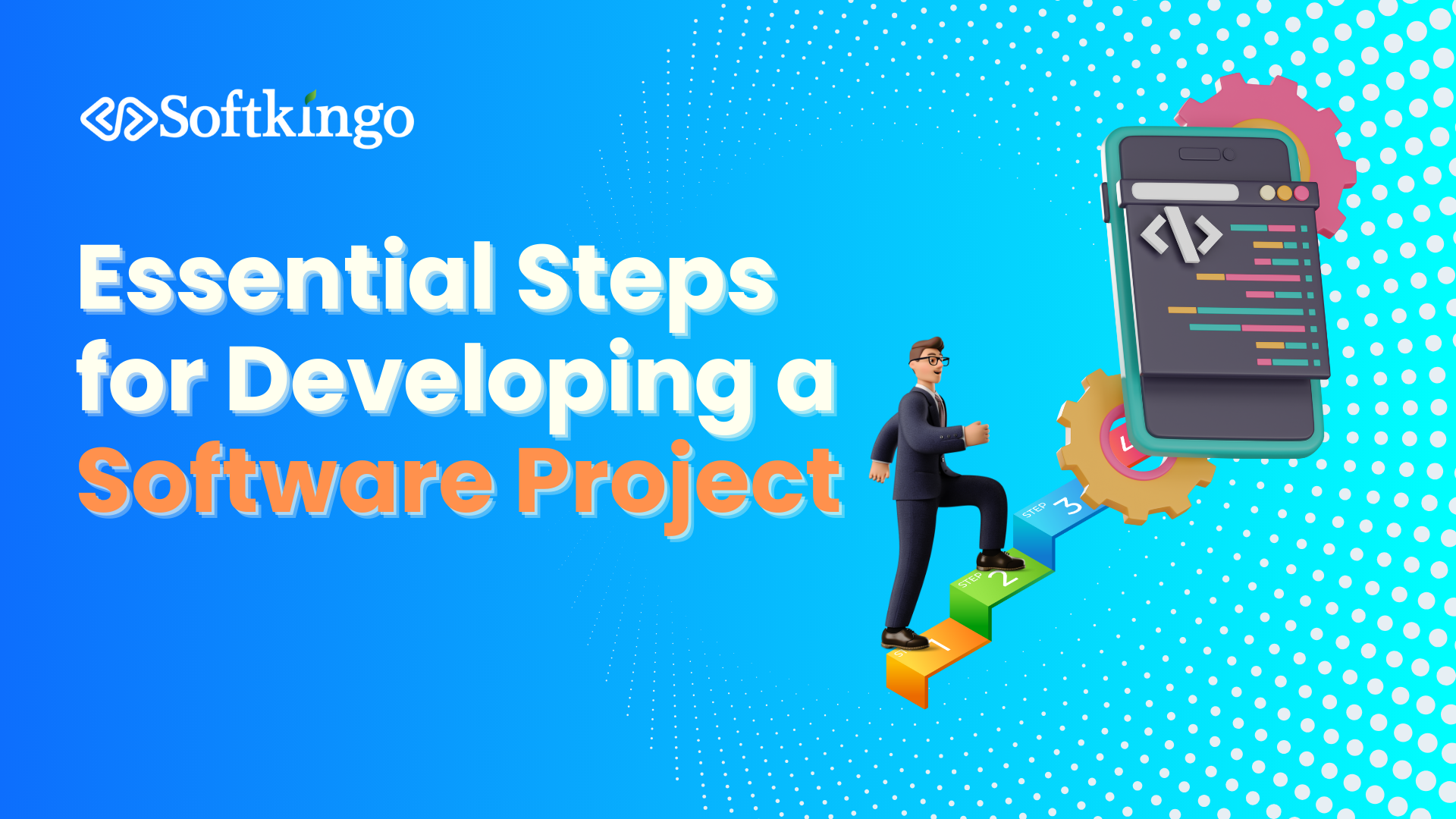How Much Does It Cost to Develop White-label Software for Construction Bidding?
In the competitive world of construction, efficiency and precision are essential to win bids and deliver successful projects. White-label construction bidding software is an innovative solution, allowing businesses to streamline bidding processes, gain a competitive edge, and manage projects efficiently. But the big question is: how much does it cost to develop such software?
Developing white-label construction bidding software offers businesses a customizable, branded platform to automate their bidding processes. In this blog, we'll explore the factors affecting the cost of development, the key features to include, and the latest technologies that can transform white-label construction bidding software.
What is White-label Construction Bidding Software?
White-label construction bidding software is a pre-built solution that can be rebranded and customized to reflect a company's unique branding and operational requirements. It streamlines the bidding process for construction-related projects, helping contractors generate, submit, and track bids while managing project details and communication with subcontractors and suppliers.
The core advantage of white-label software is that it is ready to deploy, saving time and money compared to building a solution from scratch. Businesses can quickly launch their branded construction bidding platform with features like project management, bid tracking, contract management, and financial monitoring.
Factors Influencing the Cost of White-label Construction Bidding Software
Several factors contribute to the cost of developing white-label construction bidding software, and understanding these elements is crucial for budgeting and planning.
1. Location of the Development Team
The geographic location of your software development team has a significant impact on the cost. For example, development teams in countries like the U.S. or U.K. will charge higher hourly rates compared to developers in regions like Asia. Hiring a top software development company like Softkingo, known for delivering quality at competitive rates, can help businesses reduce costs without compromising quality.
2. Scalability
Planning for future scalability is essential when developing construction bidding software. This involves accommodating user growth, increased data volume, and demand for more transactions, all of which impact the cost. Using cloud services and scalable architecture can future-proof your platform but may require a higher upfront investment.
3. Software Complexity
The complexity of the software is one of the biggest cost drivers. Advanced features like AI-driven data analysis, integrated CRM, and extensive reporting capabilities add layers of complexity, requiring more infrastructure and development time.
4. Level of Customization
Customization plays a critical role in cost estimation. Tailoring the platform to meet specific business needs, including branding, workflows, and unique features, increases both the development time and the cost.
5. Compliance Requirements
Ensuring compliance with industry regulations, such as GDPR for data security, can add to development costs. Compliance with legal standards ensures that the software meets required security and data handling standards, which can be a resource-intensive process.
6. Integration with Existing Systems
The complexity of integrating the software with existing systems like ERP or project management tools increases the cost. Seamless integration ensures efficient data flow and communication between various business functions.
7. Ongoing Maintenance and Support
Post-launch maintenance is another significant factor in the total cost. Periodic updates, bug fixes, and customer support are required to keep the software running smoothly, ensuring long-term usability and security.
8. Development Timeline
The project’s timeline can affect costs, particularly if you need to fast-track development. Shorter deadlines may require larger teams or extra hours, which can increase the overall cost.
Technologies to Consider for White-label Construction Bidding Software
Incorporating the latest technologies can make your software more efficient, secure, and user-friendly.
1. Artificial Intelligence (AI)
AI can analyze past bidding data, predict project outcomes, and suggest optimal bidding strategies. AI-driven systems can automate repetitive tasks like cost estimation, improving both accuracy and efficiency.
2. Internet of Things (IoT)
IoT can provide real-time data from construction sites, enabling better decision-making. It can monitor project progress, equipment usage, and site conditions, which can be integrated into the bidding and project management software.
3. Blockchain
Blockchain technology enhances transparency and security by creating an immutable record of all bids, contracts, and transactions. Smart contracts can automate contract execution, ensuring that all terms are enforced automatically.
4. Machine Learning (ML)
ML algorithms can identify trends in project data, enhancing cost estimation accuracy and flagging potential risks. ML can also analyze past bids to recommend optimal pricing strategies.
5. Cloud Computing
Cloud-based platforms offer flexibility and scalability, allowing users to access the system from anywhere. Real-time communication and collaboration become seamless, making the software more adaptive to business needs.
Key Features of White-label Construction Bidding Software
To build an effective white-label construction bidding software, certain features are essential:
1. Project Management
A comprehensive project management module allows users to manage multiple projects, assign tasks, track deadlines, and monitor progress in real time.
2. Bid Management
Bid management tools enable contractors to create, submit, and track bids efficiently, with features like cost forecasting, bid evaluation, and competitor analysis.
3. Cost Estimation
Accurate cost estimation is vital for any construction bid. Your software should offer tools to calculate material costs, labor, and overhead, with customizable templates and margin calculations.
4. Document Management
The document management system allows for secure storage and easy access to all project-related documents, such as blueprints, contracts, and specifications.
5. Real-time Collaboration
Collaborative features like chat, video conferencing, and document sharing help teams and external stakeholders work together in real time, improving efficiency.
6. Reporting and Analytics
Advanced reporting and analytics tools allow users to monitor cost trends, project performance, and bid success rates, helping businesses make data-driven decisions.
7. Mobile Access
A mobile-friendly version of the software is essential for users who need to access project information and bids on the go.
8. Integration Capabilities
The software should integrate seamlessly with tools like project management software, accounting systems, and CRM platforms to ensure smooth data flow.
Cost Estimation: How Much Does It Cost?
The cost of building white-label construction bidding software varies based on complexity and features:
1. Basic MVP (Minimum Viable Product)
A basic MVP with standard features like bid management, cost estimation, and project management may take 4–8 months to develop, with a cost ranging from $35,000 to $60,000.
2. Intermediate Solution
An intermediate solution, including integration capabilities, real-time collaboration, and mobile access, can take 7–11 months to build, with an estimated cost of $55,000 to $120,000.
3. Advanced Solution
An advanced platform with AI, blockchain, and machine learning can take 10 months to over a year to develop, with costs ranging from $120,000 to $180,000.
Conclusion
Developing white-label construction bidding software requires a substantial investment in time and resources, but the long-term benefits make it worthwhile. Defining your needs, planning for scalability, and choosing the right features are key to creating a powerful, customized platform. Whether you're looking for a basic MVP or a fully-featured advanced solution, Softkingo, a leading software development company, can help you bring your vision to life.
Get in touch with Softkingo today to start building your construction bidding software!
Frequently Asked Questions
1. What is the benefit of white-label construction bidding software?
White-label software offers a ready-to-use solution that saves time and resources. It can be customized to fit a company’s specific needs and branding.
2. What are the essential features?
Key features include project management, bid management, cost estimation, document management, real-time collaboration, reporting and analytics, mobile access, and integration capabilities.
3. Can AI be integrated into construction bidding software?
Yes, AI can optimize bid strategies, automate processes, and provide data-driven insights for cost estimation and project planning.
4. Is blockchain necessary for construction bidding software?
While not mandatory, blockchain adds security and transparency to the bidding process through immutable records and smart contracts.
Was this article helpful?
Current mood: Okay





